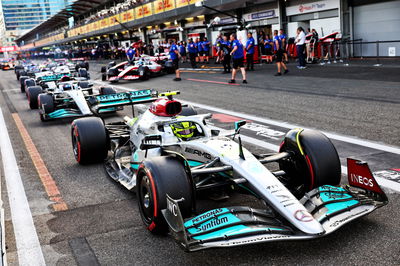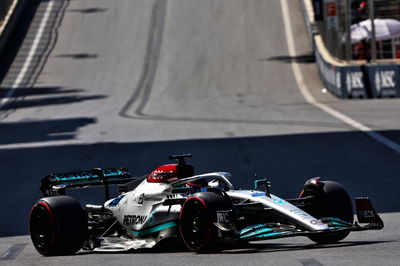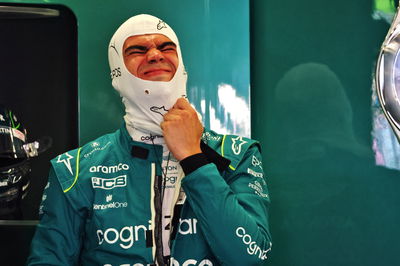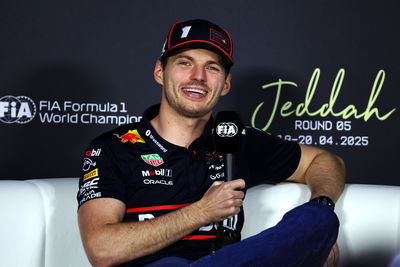Mercedes ‘experiments going wrong’ for Hamilton in defeats to Russell

Russell was once again the fastest Mercedes in qualifying at Baku as he finished fifth, two places and 0.212s ahead of Hamilton, marking the third consecutive race that Russell has outpaced the seven-time world champion.
But Wolff revealed that Hamilton has been running an experimental set-up that did not work and cost him performance as Mercedes continues to battle the bouncing issues that have dogged their car so far this season.
"Lewis has been trying some quite experimental parts on the car and there was a different floor solution on his car that didn’t work,” said Wolff after qualifying.
“The car was porpoising more and bottoming-out to the point that it became dangerous and then he couldn’t extract the performance. So yes, it was a different spec.”
Why is Russell faster than Hamilton?
Asked about Russell’s current run of form against Hamilton, Wolff replied: “I think it’s too early to try to identify a pattern, because I’m very close to it and I see that in one session one is faster and then in another session the other is faster.
“Because the car is on a knife’s edge, if you put a foot wrong in terms of experiments on the car - which need to be done in order for us to learn how to perform and where to put the car - there’s two or three tenths immediately between them.
“The last two or three races these experiments have gone wrong with Lewis and not with George.”

Speaking about his issues, Hamilton told Sky: “It was a really difficult qualifying session because we are constantly pushing. We have a very, very small [set-up] window.
“Everything we try doesn’t give us what we want, so we’re making lots of changes, but we always come out with the same conclusion – which is mostly often bouncing, which loses us a lot of performance.
“But, all of the performance is when you get the car low, so we say ‘ok, let’s just take a beating in our backs and in our necks and just get our car as low as possible to gain us performance.”
Is Mercedes any closer to solving its issues?
Mercedes have been struggling with porpoising more than any other team but thought they had taken a step forward after introducing updates at Barcelona.
However, the violent bouncing has returned this weekend in Baku, leading to Russell calling for a re-think of the rules surrounding the new generation F1 cars amid concerns over driver health.
Wolff stressed that Mercedes continues to believe in their car concept and hopes the experiments conducted in Baku and at next weekend’s Canadian Grand Prix will help the team make a breakthrough.

“We are at the moment not in the hunt for a race win on merit,” he said. “We are a good [way] behind the top teams.
“And we just need to see those sessions not with the view of optimising the single session but with a view of understanding. And this is what we’re doing and what we’re going to do tomorrow and in Montreal.”
But Wolff said that Mercedes will continue to prioritise a long-term fix over a short-term gain.
“I think we know what the root cause of our problem is, but we don’t have the answers yet of what the best solution will be,” he added. “And this is what we are experimenting with at the moment.
“I still think there is a short-term fix which is making us much more competitive, but it might not explain everything.
“I’d like to get the car in the right position for the second half of the year and also for next year. So the learning is more key than short-term optimisation for a weekend.”












